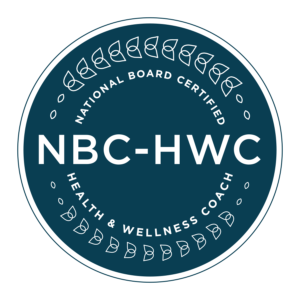|
Learning to listen was not the first lesson I expected to have on my first day of health coach training nearly 5 years ago. The lesson was on how to actively listen with curiosity and without interruption. Active listening is a specific type of listening that is all about the speaker, not the listener. Seems like a simple concept, but in practice it takes… well, practice! Learning How to ListenI found this to be an odd first lesson… I wasn’t there to learn how to listen, because of course, I was already a fantastic listener (queue eye roll). I was there to learn how to be a health coach!! I could write an entire blog about listening… but that’s not the point of this one. I make this point to illustrate that what we think we understand our path is supposed to be, is not always the path we should be taking. In health coach training I thought I’d be taught all the nutritional information I’d need to know to educate people on proper diets. I expected to learn which exercise protocols I’d need to know to be effective as an expert health coach. Boy was I in for an awakening… but it wasn’t a rude one—it was a refreshing and eye-opening one. Everything I thought I knew and or understood about being a health coach was thrown out of the window on that first day… with some relief, to be honest. I wrote in my journal that night… ‘this program is everything I never knew that I always wanted!’ (Comment below if you know the movie reference!). What I understood by the end of that first day was that health coaching is about listening to clients and keying in on what is important to them. Note that I used the word “clients” above, and not patients. Why? Because we’re not doctors, and you’re not necessarily sick. When you’re sick, you go to a doctor. When you want to be well, you see a health coach! Health coaching involves listening, reflecting, asking questions, and allowing you to explore what’s right for you, the expert on your life. We are experts in only one area, our own health! We’re not diagnosing, treating, or prescribing. We’re guiding. For a more in-depth look at what makes a health coach unique, check out this article! A Coach Will Never Tell You WHat To DOWe’ll never give you an opinion of what we think is wrong, or what we think is right for you. That’s an expert’s role. Our training, ethics, and certification (for those of us that are NBC-HWC certified, see below for more on this) allow us to create relationships with our clients that are respectful, nonjudgmental and allow space for you to create lasting change. Read that again… lasting change! The job of a health coach is to listen to you, to understand what your needs and wants are in terms of your health. We want to understand your motivations as well as your obstacles. Throughout the relationship, we work through your vision, your values and come up with a plan together to tackle your health goal of choice. Our training, credentials, and ethics do not allow us to prescribe anything —, not prescriptions, or any course of action, really. We won’t suggest that our clients do a certain diet, or a certain exercise, or push a supplement (unless they ask for our opinion, and understand that it’s our opinion only). We use a ‘coach approach,’ where we partner with our clients to enhance their well being through self-directed, goal-oriented, and lasting changes that align with their values. Re: not the values of the coach, the values of the client! A physician can prescribe a medication for you, but they can’t make you take it… you ultimately get to make that choice. This is what makes health coaching different from a health expert (doctor, nurse, dietitian, etc) approach. We will never tell you to take the proverbial pill. You’ll come up with an idea of your own, with our help, and it’ll be the solution and path you choose, not the one you are told to choose or think you should choose. See the difference? You’re in control! It may sound like I’m saying that doctors are wrong in prescribing… I’m not saying that at all. I’m illustrating the point that health coaches have different priorities and education (obviously). Statistically, a doctor spends around 17-24 minutes with a patient, long enough to listen to symptoms, diagnose, and prescribe a course of treatment. They don’t generally have time to help you create a plan to be successful in that prescribed treatment. A health coach does have that time. We spend roughly 35-60 mins per session (varies by coach) with clients over several months to work through your health goals. How Can a Health Coach Actually Help You be Healthier? We use several different tools to enhance self-motivation and self-regulation. We help you leverage your own strengths and assist you in navigating the process of change through positive psychology, using hope, optimism, and self-efficacy along the way. (1) What does all that mean? It means we listen to you, reflect, partner with you, and we are there to guide you as you discover your best path forward! We won’t judge, we won’t instruct, we won’t sell you on this or that diet plan or supplement. Note: Some coaches do sell health-related products or programs but a certified coach’s ethics will keep that separate from your coaching process. So why does the NBC-HWC after a coach’s name matter?  When I decided to sit for the NBCHWC exam, I had to really consider what it would do for me, mostly because I detest tests!!! I had told myself for years, since high school, that I’m a terrible test taker (a topic for some self-discovery work I’m sure), so for me to voluntarily sign up to take a 4-hour exam that would take months of preparation, took some serious thought. Ultimately, I decided it was the right path for me because I believe what the National Board is doing is important for the future of health and wellness coaching and those that will benefit from it. To be certified by the board you have to meet certain requirements, created in collaboration with the National Board of Medical Examiners. These include education, assessment standards, and once certified, continuing education. So why is this important to you? When you see that NBC-HWC after a health coach’s name, you can be assured that they’re held to the standards and ethics that the Board has created. Board certified coaches have been trained in, and demonstrated knowledge of, behavior change, positive psychology and understanding where their ‘scope of practice’ is. Scope of practice simply means that when they’re wearing their coaching hat, they’ll stay within the scope of a health and wellness coach and use a coach approach and not an expert approach when they work with you. In other words, they’ll not sell you anything, or direct you to follow a pre-prepared, cookie-cutter plan. Your sessions and your goals will be personalized with you in the driver's seat making the ultimate decisions about your path. When you’re looking for a coach, it’s key to know what to look for and what you can expect (non-judgment, kindness, positive regard, hope, accountability) and what not to expect (prescriptions, a ready-made plan, a magic pill or judgement). But, I see that you ‘specialize’ in women with IBD, are you an expert in that area?  Hiking is one of the things I do for my health. Hiking is one of the things I do for my health. I’m not… except that I am an expert on my own disease. I have Crohn’s Disease & Colitis, so I have experience with it and understand some of the struggles and challenges that can come with that. But not all of them. Because the symptoms are unique to each person. I have been told that no case of IBD is alike, meaning that each person’s experience of having the disease is as unique as they are. So when I work with someone who has a similar diagnosis, I know that their experience is likely completely different than my own, so I work from a place of curiosity and compassion to really find out what is important for that individual. What makes me, as a health coach, different from a doctor or PA, is that I am not looking for symptoms to diagnose and treat. I’m looking for what my client wants for themselves in terms of their health. Their goals may be directly related to their disease/diagnosis, or it may not. The client is in control of the direction, and I’m their guide and co-pilot! When you see a coach talking about a specific health area, generally that’s their focus and what interests them and it’s a way to reach out to potential clients. Having a ‘target audience’ is marketing 101, and many health coaches choose their target based on their own experience, education or interest areas. They may even have further training and education in those areas. If having a coach that is familiar with your health situation is important to you, there are coaches out there that specialize in anything from Parkinson’s, to gut health, to sexual health and anything in between! Check out these NBC-HWC’s here!! P.S. 10 points if you guessed “Fools Rush In” - the exact quote was said by Matthew Perry’s character to Salma Hayek’s character, “You’re everything I never knew I always wanted!” (1) Moore, M., Jackson, E., & Tschannen-Moran, B. (2016). Coaching psychology manual. In Coaching psychology manual. Philadelphia etc.: Wolters Kluwer. Ready to Connect with a Coach?You're in the right spot. We have an amazing, diverse group of board certified coaches on our directory. You can search by focus area to find someone that fits your needs! Have a question? Feel free to email us!
If Jeralyn is just what you're looking for, you can learn more and connect with her here. Remember, better health starts with a connection.
4 Comments
Jeralyn
2/18/2021 07:05:41 am
Thank you for the comment, Therese! To me it's interesting that we think we don't want to be told what to do... but some days, we just want someone to tell us what's next!! So we don't have to make any decisions!! hahaha
Reply
2/18/2021 08:01:34 pm
What a great article, Jeralyn! Yes, we nationally certified health coaches honor the human need for autonomy, which is not always the case in other healthcare relationships. Good for you to realize how this makes us distinctive and write about it!
Reply
Jeralyn
2/19/2021 06:21:00 am
Thank you Kathy! What a beautiful way to phrase that... we 'honor the human need for autonomy!' :)
Reply
Leave a Reply. |
take control of your health.Connect with a board certified coach to help you succeed with health changes. COACHES:
|




